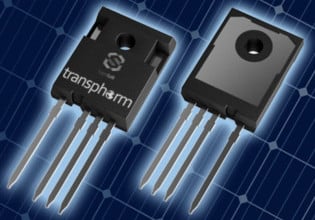Texas Instruments Launches Wireless Battery Management System for Electric Vehicles
Lithium-ion batteries are the horses behind the horsepower in electric vehicles, and the new TI system will keep those spirited mustangs under control without weighing them down.
An electric vehicle’s battery is a conglomeration of 100 or more independent cells. They need to be constantly monitored, controlled, and balanced. TI’s new battery management system (BMS) allows that control to be established wirelessly, saving weight and eliminating troublesome cabling.
Image courtesy of Texas Instruments
The CC2662R-QI SimpleLink is the BMS’s centralized wireless MCU. It establishes a radio link with multiple BQ79616-Q1 battery monitors/balancer, which are placed wherever the individual battery cells are physically located
Why Wireless?
As described in a TI blog, to connect each cell to a central monitoring/control site would require many yards and many pounds of cabling, just waiting to malfunction in the harsh automotive environment. Going wireless saves pounds, saves space, and eliminates a big source of maintenance problems.
“It’s like designing with a blank canvas," explains TI’s Daniel Torres. “When you don’t have to worry about wires, you can figure out new ways to take advantage of the space, and even mix and match different sizes and types of batteries."
Compliance with Standards
To foster industry acceptance, TI has requested the assistance of TÜV SÜD, an industry-leading functional safety authority. TÜV SÜD will independently evaluate its new BMS system’s adherence to Automotive Safety Integrity Level (ASIL) D, the highest level of the International Organization for Standardization (ISO) ISO 26262 certification.
“The implementation of wireless battery management systems will be a growing trend in the EV marketplace because these advancements provide greater flexibility of design while also lowering the complexity and cost relative to traditional systems,” said Asif Anwar, director of the powertrain, body, chassis and safety service at Strategy Analytics. “By demonstrating a solution that combines these advantages with ASIL D compliance, the TI solution sets a benchmark for the industry to follow.”
The CC2662R-Q1 SimpleLink Wireless BMS MCU
The CC2662R-Q1 SimpleLink Wireless BMS MCU communicates over 2.4 GHz with as many as 100 battery cells with latencies of less than 2 ms per node. There is less than one error for each 10 million data packets.
The BMS MCU contains a 8-MHz Arm Cortex-M4F processor. It operates on power supplies ranging from 1.8 to 3.63 volts and typically draws less than 10 mA.
Extensive features include security includes:
- AES 128-bit and 256-bit crypto accelerator
- CC and RSA public key hardware accelerator
- SHA2 accelerator (full suite up to SHA-512)
- True random number generator (TRNG
The MCU is available 7 x 7 mm VQFN48 package with wettable flanks. It operates over a –40°C to +105°C temperature range and is AEC-Q100 qualified.
Texas Instruments is Not Alone
Every pound saved is more distance between charges, and every electrical cable eliminated is one less failure point, so it’s no surprise that TI has company. We recently covered a collaboration between General motors and Analog Devices (ADI), another major player in the electronics industry. The motivation of TI and ADI are similar, to save space and weight, space and to improve overall vehicle reliability.
At the time of this writing, TI has no announced automotive customer. However, because of the obvious advantages offered by wireless battery monitoring over cables, the methodology is becoming a solid trend, with many opportunities ahead for TI as the race toward the electrification of the auto industry proceeds apace.
Getting to Market Faster
TI’s CC2662RQ1-EVM-WBMS SimpleLink wireless BMS development module includes one pre-programmed battery control unit and 8 pre-programmed cell sensor units. A free download of TI’s SimpleLink wireless BMS software development kit (SDK) is included at no cost.
Image courtesy of Texas Instruments
The combo is aimed at helping engineers to more quickly evaluate the CC2662R-Q1 wireless MCU and BQ79616-Q1 automotive precision battery monitor and then to speed up actual application development.








